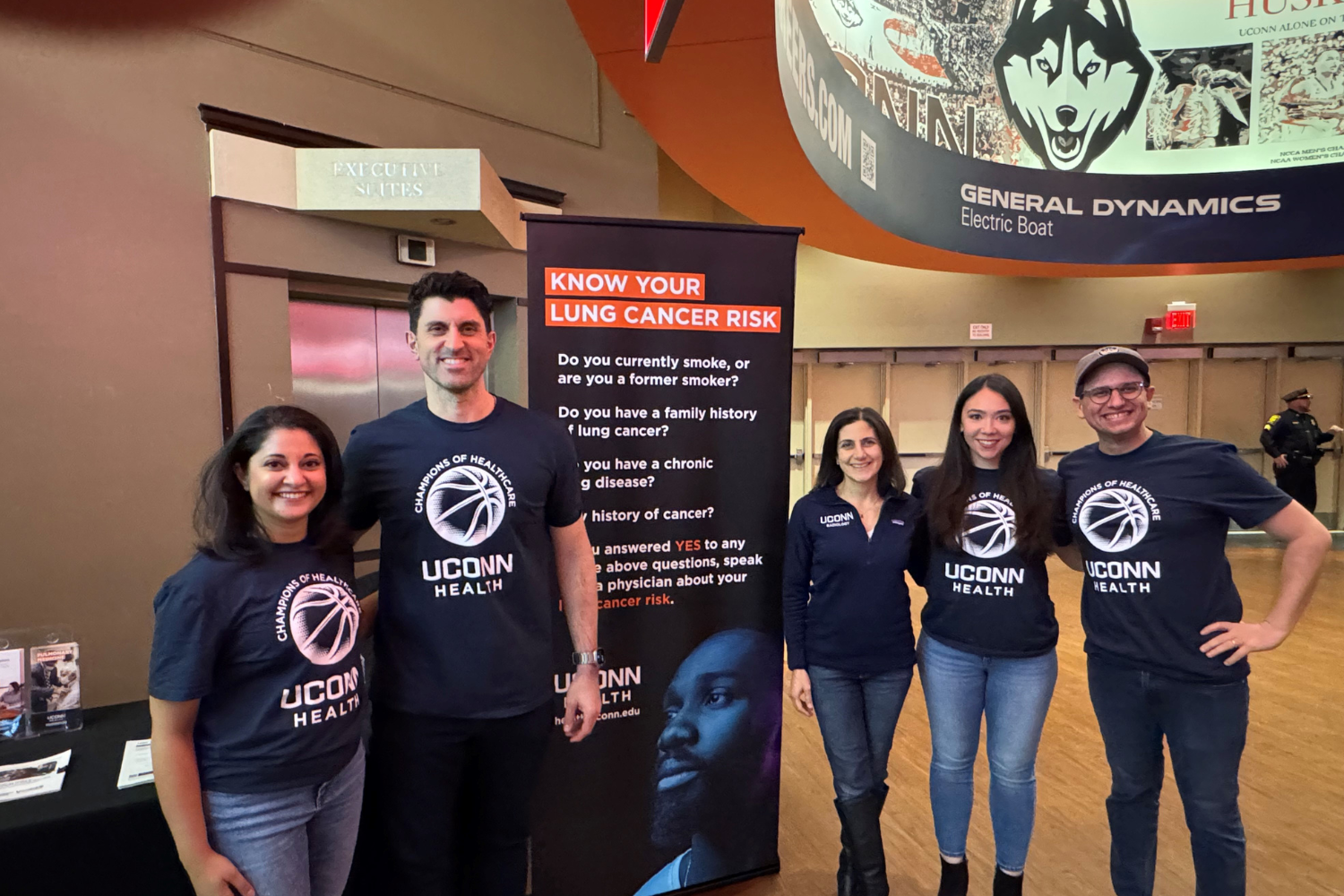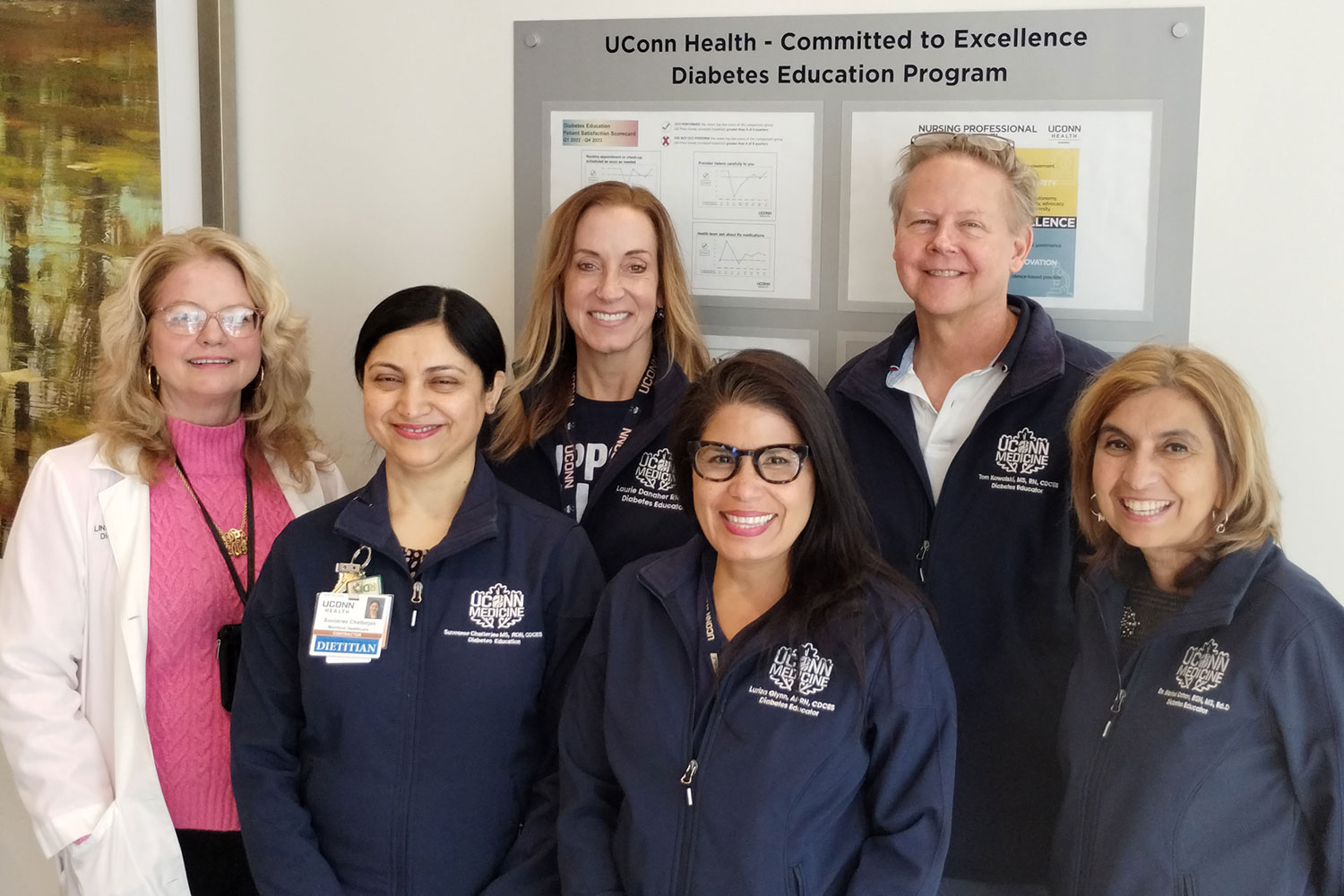UConn is joining student athletes across the country in celebration of a victory that took place not on the gridiron, but in the U.S. Capitol.
On Christmas Eve, President Joe Biden signed into law an act that will increase funding available for lifesaving defibrillators and expand access to CPR training, following unanimous support in the U.S. Senate. The HEARTS Act – Cardiomyopathy Health Education, Awareness, Research, and Training in Schools – is the result of months of advocacy from Buffalo Bills safety Damar Hamlin and partners seeking to provide critical support to students and athletes across the country.
UConn’s Korey Stringer Institute (KSI) was instrumental in advocating for the law, lending expertise and guiding on best practice for emergency care for victims of Sudden Cardiac Arrest (SCA). Part of UConn’s College of Agriculture, Health and Natural Resources (CAHNR), KSI is dedicated to preventing sudden death to athletes, warfighters, and laborers.
“It is with unbelievable excitement that the Korey Stringer Institute and the many partners in the Smart Heart Sport Coalition can share that the HEARTS Act is now officially law with the signing of the bill by President Biden,” says Douglas Casa, a Board of Trustees Distinguished Professor in the Department of Kinesiology at UConn and CEO of KSI.
Casa notes that KSI has been involved with the NFL Smart Heart Coalition since its inception in March 2023 at the NFL Owners Meeting in Phoenix. The Coalition advocates for expansion of athletic safety, specifically the administration of emergency action plans, coaching education, and access to automated external defibrillators (AEDs). The latter are used to treat a person suffering an SCA.
“The pillars of the Coalition correspond closely with KSI’s efforts in our TUFSS (Team Up For Sports Safety) program that partners with the NFL and NATA to enhance health and safety policies for high school sport,” Casa says. “It’s an effort that has, so far, taken KSI to 46 states and more than 70 state meetings in the past five years, resulting in more than 300 policy changes.”
The NFL drove the inception of the Coalition following the cardiac event that occurred to Hamlin in January 2023 in a nationally televised game. After making a tackle, Hamlin experienced an SCA and collapsed on the playing field. Onsite medical staff administered CPR and an AED, effectively restarting the player’s heart before transporting him to a local hospital.
Hamlin’s recovery was incredible, eventually leading to his return to the Bills’ defense at the start of the next season. Since the incident, he has used his platform to raise awareness of the need for more people to be trained in CPR and administering AEDs – an area of significant shortfall.
Schools that have AEDs are better prepared to save the lives of student athletes. In the case of a cardiac arrest, children are seven times more likely to survive if an AED is correctly administered. Additionally, athletes are 10% less likely to survive an SCA for every minute that an AED is delayed.
“I believe that every single one of them deserve the same kind of care that I had, as far as kids growing up who want to chase their dreams and want to pursue anything that they want to do,” Hamlin said last week, speaking on Capitol Hill in Washington. “And we have a chance to be impacting the next generation. We got a chance to make history.”
Senate Majority Leader Chuck Schumer, D-NY, worked with Hamlin and the Coalition on the passage of the HEARTS Act, which the U.S. House of Representatives approved in May. The Senate passed the act on Dec.10.
“Damar and I formed the perfect team, bringing together teachers, health care leaders, and athletes to make sure every student has access to the kind of life-saving care he did,” Schumer said in a release. “This legislation goes beyond the field and its impacts will stretch thousands of miles outside Buffalo to help millions of kids. Now, the HEARTS Act is headed to the President’s desk to be signed into law and save lives.”
Sudden cardiac arrest is the leading cause of death for student athletes in the United States. Each year, as many as 23,000 children under the age of 18 suffer an SCA in the United States, which student athletes accounting for about 40% of the incidents.
The Smart Heart Coalition advocates for states to implement three best practice policies to prevent death from SCA. They include:
- Emergency action plans for each high school athletic facility, with the plans widely distributed, posted, rehearsed, and updated;
- Clearly marked AEDs at each facility within three minutes where practices or competitions are held; and
- Providing CPR and AED education for all coaches.
According to the Coalition, Connecticut is among the 22 states with policy for all three best practices. Five states – Iowa, Minnesota, Nebraska, Oregon, and Pennsylvania – have not enacted any policy.
The HEARTS Act was initially introduced in March 2023 as the Access to AEDs Act. At the time, Kinesiology assistant professor-in-residence Christianne Eason – KSI’s president of sports safety & education – joined with dozens of partners to advocate for the bill’s passage. Representatives from Connecticut-based AED manufacturer Defibtech, which is one of KSI’s corporate partners, also attended the bill’s introduction in Washington D.C.



